#the Law Society of British Columbia
Text
A British Columbia lawyer alleged to have submitted bogus case law “hallucinated” by an AI chatbot is now facing both an investigation from the Law Society of B.C. and potential financial consequences.
Earlier this month, it was revealed that lawyer Chong Ke allegedly used ChatGPT to prepare legal briefs in a family law case at B.C. Supreme Court.
In reviewing the submissions, lawyers for the opposing side discovered that some of the cases cited in the briefs did not, in fact, exist.
Those lawyers are now suing Ke for special costs in the case.
Full article
Tagging: @politicsofcanada
#cdnpoli#canada#canadian politics#canadian news#canadian#british columbia#BC#law society of BC#Chong Ke#AI#chatgpt#law#legal#legal system#BC supreme court
91 notes
·
View notes
Link
Whenever you need a real estate agent in Surrey, or if you have questions about the legal aspects of buying a commercial property in Surrey, Satinder Dhaliwal Law Corporation can help you.
#professional organisation#Law Society of British Columbia#corporate law firms#top-notch real estate lawyer
1 note
·
View note
Photo

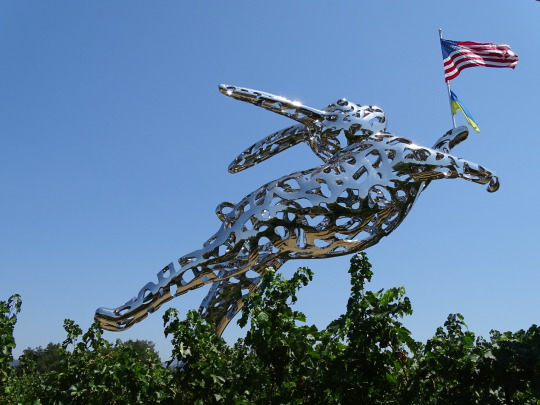
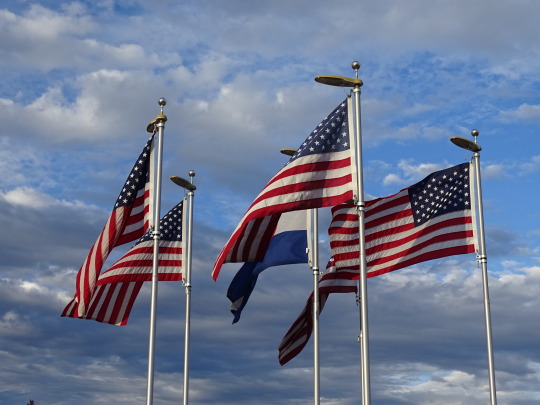
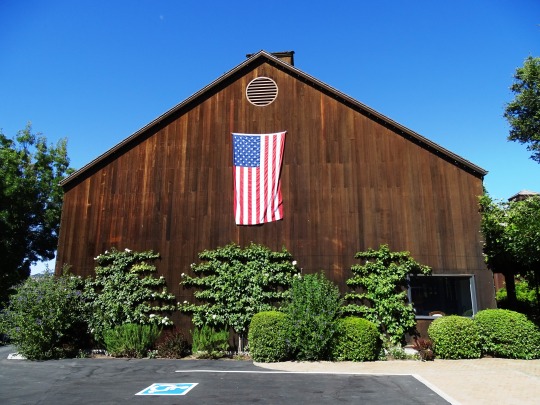
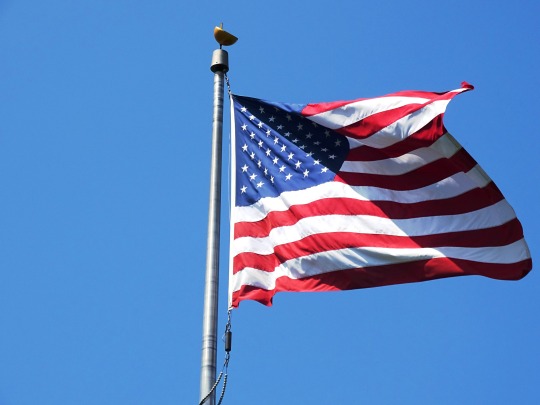
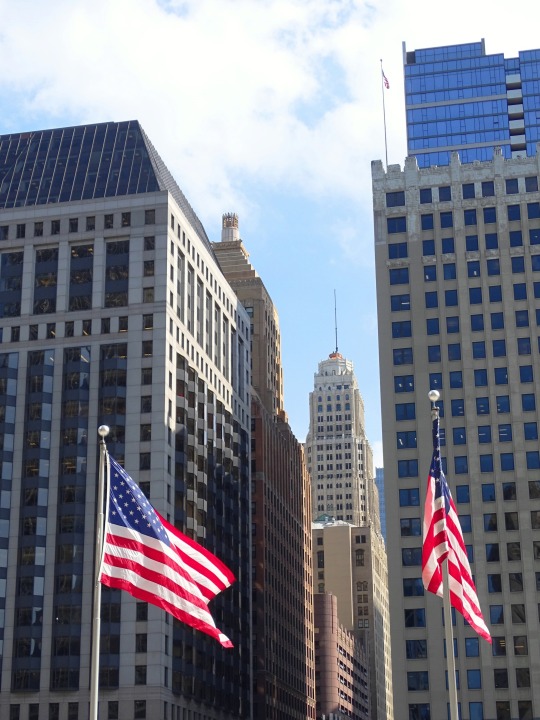
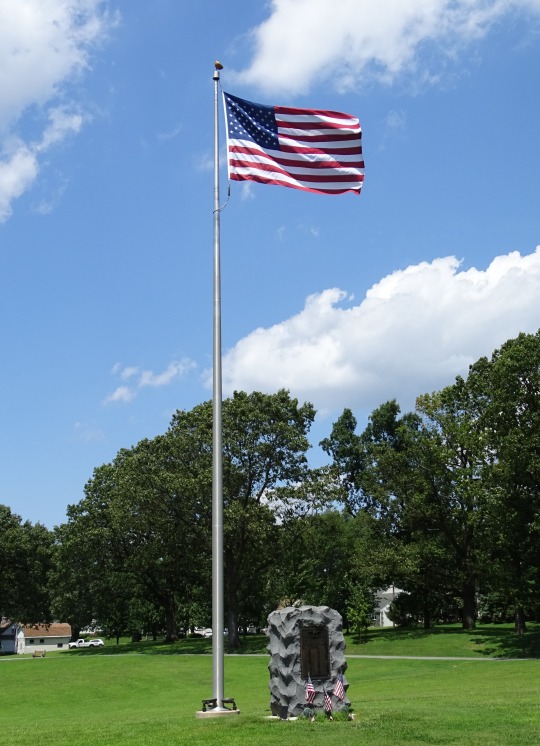
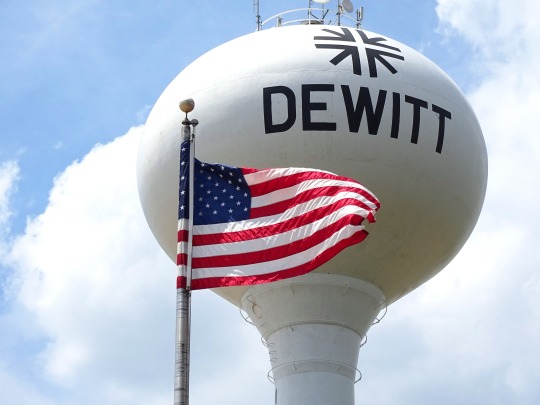
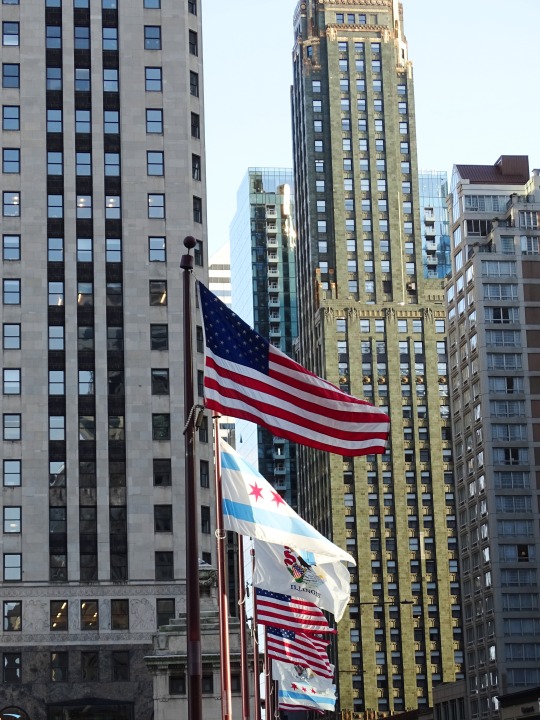
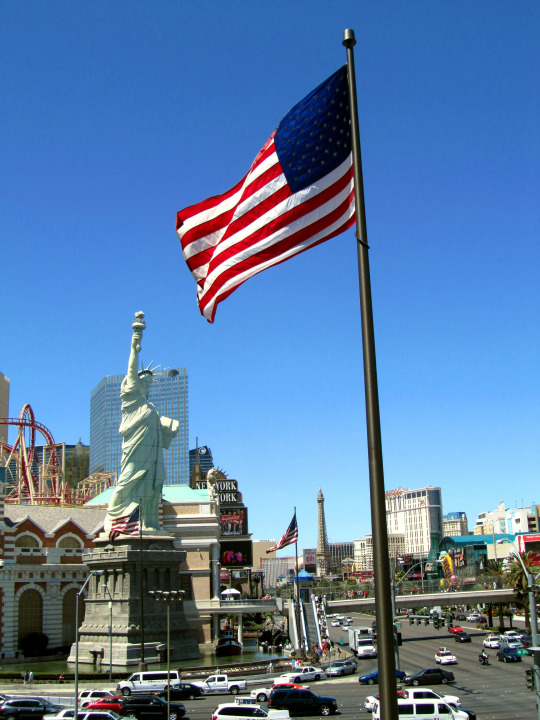
The United States adopted The Star-Spangled Banner as its national anthem on March 3, 1931.
National Anthem Day
In the early years of the republic, there were a few popular patriotic songs, such as "Yankee Doodle" and "Hail Columbia," but there was no national anthem. Today we celebrate the "The Star-Spangled Banner," which became the official national anthem of the United States on March 3, 1931. The song was inspired by a real flag and events that took place surrounding it.
The War of 1812 began in June of 1812. The United States achieved some early victories, but after France and Napoleon were defeated at Waterloo in April of 1814, the British were able to focus more on the war in the United States. After invading Washington D.C. and setting fire to The White House and Capitol in August, the British turned their attention to Baltimore, Maryland.
On September 13, Baltimore's Fort McHenry withstood a 25-hour bombardment from the British Royal Navy. Early on the morning of September 14, soldiers hoisted a large (30 x 42 feet) American flag over the fort. At the time, Francis Scott Key, an attorney who worked in Washington D.C., was on a ship in the harbor of Baltimore. He had been working to negotiate the release of Dr. William Beanes, who had been captured in an earlier battle. Although he was able to secure Beanes' release, the Americans were told they could not leave until the bombardment was over. As Key saw the flag wave over the fort, he wrote the first verse of what would become "The Star-Spangled Banner." At the time he named it "Defense of Fort M'Henry."
Sometime shortly thereafter, Key wrote three more verses. (Today just the first verse is commonly sung, with the fourth verse sometimes being used at formal occasions.) The verses were issued on a broadside by a local printer on September 17, and they were printed in two Baltimore newspapers, the Baltimore Patriot and The American, on September 20. The words were then printed by more papers along the East Coast.
Key set the verses to the tune of an English drinking song called "To Anacreon in Heaven" (also known as "The Anacreontic Song"), which was written in 1775 by John Stafford Smith and originally performed by the Anacreontic Society, a gentlemen's club in England. The song eventually became popular in the United States. Its subject, Anacreon, was an ancient Greek poet known for loving wine. Key had previously used the tune to accompany verses he had written in 1805 about American naval victories in the Barbary War. In fact, some of the wording he had used in the verses for that war were similar in nature to those in "Defense of Fort M'Henry." By one account, it was Key's brother-in-law who noticed the new verses fit the same melody, and convinced him to use it again. In October, Baltimore actor Ferdinand Durang gave the first public performance of the song, and the following month the song appeared in print under the title "The Star-Spangled Banner" for the first time.
The song gained in prominence following the Civil War, because it was about the flag and the flag was increasing as a symbol of national unity at the time. It became a staple of Fourth of July celebrations and other patriotic events. In the 1890s, the U.S. military began using it for ceremonies. In particular, it became the song of the Navy's flag raisings.
Woodrow Wilson signed an order in 1916 to make "The Star-Spangled Banner" the national anthem, but it did not become the official anthem until Congress passed a law fifteen years later. Wilson also asked the Bureau of Education to standardize the song, as there were a few different versions at the time. Five musicians worked on the song, including John Philip Sousa. The new version was first performed on December 5, 1917.
"The Star-Spangled Banner" made its major-sporting-event debut on September 5, 1918, at Chicago's Comiskey Park, during the first game of the World Series between the Chicago Cubs and the Boston Red Sox. The United States was in World War I at the time, and there was some added emotion in the air because a bombing had taken place the day before at the Chicago Federal Building. A military band played the song during the seventh-inning stretch, and players and fans saluted. The song soon began being sung at other baseball stadiums, and then spread to other sports.
On April 15, 1929, Rep. John Linthicum (D-Md.) introduced a bill to make "The Star-Spangled Banner" the national anthem. He had previously introduced such a bill four times before, going all the way back to 1918. As part of his district was in Baltimore, some thought that he was pushing for the bill for himself and for his district more than he was doing it for patriotism and the country. The bill eventually got a hearing before the House Judiciary Committee, and Linthicum presented them with a petition with 5 million signatures, which had been organized by the Veterans of Foreign Wars. He also presented them with resolutions and letters from 150 organizations and messages of support from 25 governors. The House approved the bill on April 21, 1930, and the Senate did on March 3, 1931. President Herbert Hoover signed it the same day and the "Star-Spangled Banner" became the official national anthem of the United States.
Although it has largely been looked upon as a patriotic song about freedom, it has not been without controversy. Key owned slaves for many years, including at the time when he wrote the song, which includes the line "the land of the free." He eventually freed his slaves, and his position was that slaves should return back to Africa. In recent times, some have used the song to protest racial injustice, by staying seated or kneeling when the anthem is played at sporting events. They have seen this as a patriotic gesture, while others have seen it as quite the opposite.
And what became of the actual star-spangled banner that the song was written about? The flag had been sewn by Mary Pickersgill with the help of a few others. After the battle, it was given to George Armistead, the commander of Fort McHenry. He died a handful of years later and his widow, Louisa, received it. It stayed in the family for many years and was rarely seen. In 1878, the Armistead's grandson, Eben Appleton, inherited the flag. He allowed it to be displayed at Baltimore's sesquicentennial in 1880, but then put it in a safety deposit box because he wanted to preserve its condition. He loaned it to the Smithsonian Institution in 1907, and donated it permanently to them in 1912, with the request that it be on display for the public. In the late 1990s, a preservation project was undertaken. The flag can be visited today at the Smithsonian's National Museum of American History.
How to Observe National Anthem Day
There are many ways to celebrate the day:
Read, memorize, and sing "The Star-Spangled Banner."
Visit the original Star-Spangled Banner at the National Museum of American History.
Visit the home where the flag was sewn.
Explore Fort McHenry, where the flag once flew.
Read a book about the "Star-Spangled Banner," such as Marc Ferris' Star-Spangled Banner: The Unlikely Story of America's National Anthem or Marc Leepson's What So Proudly We Hailed: Francis Scott Key, A Life.
Watch a documentary about "The Star-Spangled Banner," or watch a video about the Star-Spangled Banner exhibit.
Watch or listen to noteworthy renditions of the "Star-Spangled Banner."
If you are not from the United States, find out if your country has a national anthem, and learn about it and its history.
Source
#Alamosa#Colorado#Sonoma#St. Helena#Bunny Foo Foo by Lawrence Argent#Turnbull Wine Cellars#Oakville#vacation#summer 2022#2019#original photography#Malvern#Paoli Battlefield Site and Parade Grounds#National Anthem Day#Star-Spangled Banner#3 March 1931#anniversary#US history#DeWitt#US flag#Chicago#architecture#landscape#cityscape#Las Vegas#Paradise#USA#2011
27 notes
·
View notes
Text
12. why the 1880s?
something about this decade really sings to me. I find in particular, nearing the end of the nineteenth century, so much was happening on around the world in terms of arts, politics, technology, colonization. world events and global news don’t personally reach the day-to-day lives of the everyday folk, but they are an important part in gauging what life, thought, and society was about—what things were important then and now?
basically for myself, reminding me of notable things that occured during the 1880s—some thematic, some of relevance to context and characters, and the rest just ?? interesting and/or wild?
cocaine is a hot new cure for everything and anything. perscribed, sold in foods and more. heroine introduced as a lesser-addictive substitute for morphine…
lots of developments in fields of psychology; many experiments and happenings; Freud starts his work 1886.
1880-1914 had +twenty million immigrants to the United States: Germany, Ireland, England, China had the most arrivals.
William Dorsey Swann, the first self-proclaimed drag queen, organizes a series of drag balls in Washington, D.C. 1880-1890s.
Jack the Ripper claims his “first” victim in 1888 White Chapel, London. big scare.
Sherlock Holmes first appears in Arthur Conan Doyle’s A Study In Scarlet as part of the British magazine’s Beeton’s Christmas Annual in 1887.
Strange Case of Dr. Jekyll and Mr. Hyde by Robert Louis Stevenson is published in 1886. Gothic fiction, drawing from emerging fields of science and psychology. & Treasure Island was published earlier in 1883 by him too!
Mark Twain drops The Prince and the Pauper (1881), Adventures of Huckleberry Finn (1884), A Connecticut Yankee in King Arthur’s Court (1889).
Bel-Ami, Guy de Maupassant’s second novel is published in 1885. about a man who seduces and manipulates high society French women in the French colonies for power and wealth. MOVIE WAS ADAPTED IN 2012 STARTING ROBERT PATTINSON LOL
western European art movements very romantic and swirly and pretty: Monet, Debussy xoxo.
meanwhile, African American ragtime music becomes the “pop” music across the pond here.
North Dakota (1889), South Dakota (1889), Montana (1889), Washington (1889) become states.
train segregation laws flag beginning of Jim Crow; Civil Rights Movement of 1875 voided, making discrimination in private is not illegal, and prohibiting state intervention to personal or commercial segregation. l*nching continues throughout the south. slavery may be over on paper, but indentured labour is legal.
1882 infamous O.K Corral gunfight.
Gold Rush continues, all over the world—South Africa, to British Columbia, to California, to Argentina, to Russia-China borders.
centuries of American “Indian” wars continue.
American Dawes Act of 1887 granted American government authorization to regulate indigenous lands, including creating and assigning and enforcing reservations.
Sitting Bull’s 1883 speech of the atrocities experienced at the hands of white American settler colonists.
Canadian Pacific Railway 1881-1885. foreign labourers were hired to do a lot of heavy, dangerous, unwanted work. in America, more than 100,000km of tracks were laid by majority Chinese, Irish, Scandinavian workers.
America’s Chinese Exclusion Act of 1882 and Canada’s Chinese Immigration Act of 1885 was officiated, enforcing law of a Head Tax to be paid for every Chinese person entering North America. over the course of the next couple of decades, the fee of $1,500 was doubled to $5,000 was increased 500% to $25,000 in today’s currency—per person. this had devastating and lasting impacts on generations and societies of Chinese living both overseas and already in North America. propaganda at this time created many racist myths that persist today: there are too many Asians, they are taking our jobs, (the men) are gross and effeminate and a threat to (white) women, they shady and scheming people. these were the first and only major federal legislation to explicitly suspend immigration for a specific nationality in American and Canadian history. (I study Asian Canadian history, I can go on about this all day)
Tong Wars (1883-1913) had Chinatown gangs and factions in violent street wars across America, San Fransisco to New York.
large, targeted, and repeated anti-Jewish rioting (pogorm) and antisemitism rampant throughout Imperial Russia, 1881-1882 had more than two hundred anti-Jewish events alone. Jews continue to be racialized and othered.
fuck ton of colonization happening in Africa and the Middle East, Southeast Asia. Berlin conference 1884-1885 literally chopped up Africa to distribute to European powers.
Irish nationalist efforts to push forth Home Rule bill of sovereignty is defeated in British Parliament. Irish are not “white”, they are “othered” in Europe and in Americas.
use of photographic film pioneered by George Eastman, who started manufacturing film. his first camera (Kodak) was ready for sale in 1888.
Thomas Edison gets lit in New York 1883 with first electrical power station. next several year sees major cities being lit up with street lamps and public lighting with the science and works of a Nikolas Tesla (1886-1893).
hell of a lot more inventions in the works and patents being claimed. Hertz and radiowaves, Bell for telephone services.
“Between the years of 1850–1900, women were placed in mental institutions for behaving in ways the male society did not agree with”
way too much history to cram, obviously. here are some keywords for further research oki
prison industry / spiritualism / opium epidemic / irregular and uneven “modernizations” in rural vs. urban areas / class and poverty gaps / morality scares, checks, comparisons, gaps / new businesses and gadgets, products, tech to help with anything / fascination of the (colonial) Other; side shows, “freak shows” and other human zoos
#update#victorian era#1880s#1800s#1880s history#update: research#writing research#drugs cw#lynching cw#inventions#technology#gold rush#ref: poc history#ref: indigenous history#ref: black history#ref: queer history#ref: womxn history#ref: research#american history
5 notes
·
View notes
Note
Can you please tell us more about Troup and Hamilton’s friendship? I heard that they would clash at times, so what did that usually look like?
Of course, I can. Robert Troup (1756-1832) was born in New Jersey, and was Hamilton's undergraduate roommate at King's College (Columbia University), and it was during that time that they formed an everlasting friendship. Like Hamilton, Troup was studying law, but was under John Jay. They shared bunks together, [x] and they both - alongside Nicholas Fish - joined the New York militia group called The Hearts Of Oak (Originally coined as Corsican). The two actually had a lot in common; both of them were orphans, Troup's father having died the same year Hamilton's mother had too in 1768, and then his own mother the following year. And both of them were trying to get ahead, with very little money in their possessions.
Troup was known to be lighthearted and humourous, which likely consoled Hamilton during his depressive episodes. In Hamilton's first months at King's, he and Troup formed a club that gathered weekly for debating, writing, and speaking skills. With familiar members like; Nicholas Fish, Edward Stevens, and Samuel and Henry Nicoll, who were all relatively Hamilton's closest friends during his college days. Troup said Hamilton; “made extraordinary displays of richness of genius and energy of mind” at the debates. [x] As tension of the revolution was brewing, many discussions included the question of royal-colonial relations. And while at first, Hamilton sided with the monarchists, he later began to publish anti-British pieces, as he used the debating society at King's to preview his essays.
Hamilton had also apparently written poetry in honor of his friendship with Troup, but Troup says that he had lost it during the war and never found it;
After giving this hint of the General's poetical vein, I ought to mention, that whilst he was in college, he now and then paid his court to the muses; and as a pledge of his friendship, he presented me with a small manuscript of fugitive poetry; the amusement of his leisure hours. I was not a little pleased with the pledge—I considered the poetry, as strong evidence of the elasticity of the General's genius—and I have often lamented that the manuscript was lost, with my books and papers, during the War.
Source — Library Of Congress, digital collections. Alexander Hamilton Papers: Miscellany, 1711-1820; Memoirs relating to Hamilton.
Troup was also the last visit Hamilton made before his fatal duel with Burr, for weeks Troup had lain bedridden with a grave illness that Hamilton feared might prove mortal. Troup wrote of the event saying;
On the afternoon of the day preceding the fatal duel, and immediately after finishing an elaborate opinion on a case submitted to him, the General called to see me. I had been confined to my house for several weeks, with a complaint, which the General and most of my other friends, were afraid had inflicted a dangerous, and probably mortal, wound on my constitution. The General’s visit lasted more than half and hour; and after making particular enquires respecting the state of my complaint, he favored me with his advice as to the course, which he thought would best conduce to the reestablishment of my health, But the whole tenor of the General’s deportment, during the visit, manifested such composure, and cheerfulness of mind, as to leave me without an suspicion of the rencontre that was desending.
Source — Library Of Congress, digital collections. Alexander Hamilton Papers: Miscellany, 1711-1820; Memoirs relating to Hamilton.
Although they had very different life preferences and the choices that they made. Hamilton could be very dismissive towards his financial situation, and paid little attention to his personal finances in favor of prioritizing glory or legacy—While adolescent hardship had instilled in Troup a lasting sense of financial insecurity, and he was constantly urging Hamilton to get higher paying jobs. To the point at moments, Troup would loan money to Hamilton. [x] Hamilton also considered a moment wasted if it was not spent advancing his status or making an appearance, Troup - on the other hand - never sought glory for himself, and was willing to be a follower. This polarization sometimes clashed between them, but it would ultimately be one of the components that made them. As Wood writes;
Like Burr, Hamilton had a continual need for money, and he knew that many public officials like Burr were using their political connections to get rich. He did not want to be one of them. In 1795, at a time when Hamilton was financially pressed and out of public office, his close friend Robert Troup pleaded with him to get involved in business, especially in speculative land schemes. Everyone else was doing it, said Troup. “Why should you object to making a little money in a way that cannot be reproachful? Is it not time for you to think of putting yourself in a state of independence?” He even joked to Hamilton that such moneymaking schemes might be “instrumental in making a man of fortune – I may say – a gentleman of you. For such is the present insolence of the World that hardly a man is treated like a gentleman unless his fortune enables him to live at his ease.” Hamilton refused. “Saints,” he told Troup, might get away with such profit making, but he knew he would be denounced by his Jeffersonian Republican opponents as just another one of those “speculators” and “peculators.” He had to refuse “because,” he sardonically put it, “there must be some public fools who sacrifice private to public interest at the certainty of ingratitude and obloquy – because my vanity whispers I ought to be one of those fools and ought to keep myself in a situation the best calculated to render service.”
Source — Revolutionary Characters: What Made the Founders Different, by Gordon S. Wood · 2006
To which Troup made a joke about Hamilton's friends having to pay to bury him;
I sincerely hope that we shall both save our heads and that you may by some fortunate & unexpected event acquire the means of perfect independence in spite of all your efforts to be poor. I have an interest in an event of this nature which perhaps you have forgotten. I have often said that your friends would be obliged to bury you at their own expence.
Source — Robert Troup to Alexander Hamilton, [May 11, 1795]
There was even one point when Troup foretold the future with a joke poking fun at Hamilton, claiming that he and King should start a subscription to pay for Hamilton's funeral expenses. When two years later, both Troup and King would actually become major contributors to the subscription to pay for Hamilton's funeral and to help support Eliza and their seven children;
Hamilton is closely pursuing the law, and I have at length succeeded in making him somewhat mercenary. I have known him latterly to dun his clients for money, and in settling an account with me the other day, he reminded me that I had received a fee for him in settling a question referred to him and me jointly. These indications of regard to property give me hopes that we shall not be obliged to raise a subscription to pay for his funeral expenses.
Source — Robert Troup to Rufus King, [April 8, 1802]
There has also been - really newfound - speculation that the two may have had a more romantic connection in college, especially when considering the suspicious closeness the two had with other men. But if you want to read up on that I talked about it here.
Hope this helps!
#So anyway Troup had Apollo abilities apparently and I will never get over that#amrev#american history#alexander hamilton#historical alexander hamilton#robert troup#history#queries#sincerely anonymous#cicero's history lessons
27 notes
·
View notes
Text
March 21, 2024
Mr. Getson: This United Conservative government is doing more than any other government before to support the homeless, improve public safety, and make sure that the most vulnerable in our society get access to the services they need to live successful, happy lives. Unfortunately, the NDP opposition has made it very clear that they don’t feel the same way. Instead of getting vulnerable Albertans the help they need, the NDP opposition, or should I say the party of tents, would rather have people brutalized by dangerous gangs, made victims of the environment or lethal drugs run rampant, or, worse yet, freeze and burn to death in encampments.
Just look at their socialist comrades in British Columbia, that flooded the streets with taxpayer-funded drugs, emboldened cartels and organized crime, defunded the police, and demoralized their hard-working citizens. This is the legacy of the NDP, and if they had it their way, this would be the future for Albertans. But, Mr. Speaker, the United Conservative government is standing firm against the normalized chaos that the NDP so desperately want. Jasper Ave will not become East Hastings.
Let’s be clear, Mr. Speaker. This is a direct attack on the well-being of the most vulnerable in our society. It’s a sick socialist ideology that would rather see trafficking minors, exploding propane heaters, total victimization by dangerous gangs, unsanitary conditions, including over 4,000 used needles, than keeping people safe and warm in the winter. The opposition strategy to attack the incredible social service organizations that work day in and day out to support those in need is an attack to our Indigenous partners who are working tirelessly to provide shelter, cultural services as well. It’s an attack on our law enforcement officers who risk their lives every day to keep Albertans safe. Most of all, it’s an attack on the dignity of the Albertans who the NDP would rather have in an abandoned tent and a photo op than to really take care of.
#in case you need something to roll your eyes at#shane's got you covered#pretty much always#alberta#alberta politics#ableg#Shane Getson#Lac Ste Anne-Parkland#UCP#cdnpoli
4 notes
·
View notes
Text
Local Factions — The World Within Casper
For more on the Global Factions, click here.

The Casper Fey Council
The Casper Fey Council, often referred to as just "the Council," is a local fey council centered in the city of Casper but presiding over a large portion of northwestern Washington and southwestern British Columbia—a territory that includes the entirety of Redcliff Forest.
Fey councils—or courts, as some people still call them—are governing bodies whose primary function is to oversee and protect supernaturals living within their territory. They are referred to as fey councils because historically these councils were solely run by and concerned with the affairs of the fey. However, these days most fey councils are actually made up of and in charge of all types of supernatural beings (if a group still refers to itself as a fey court, it is more likely to be composed solely of fey and to claim territories on multiple planes of existence).
The Council's main tasks are to hold beings accountable to the laws of their faction and to maintain a masque (a web of lies which hides the existence of the supernatural). Many councils will also attempt to gain control of local human societies, but this is supposed to be limited to endeavors that aid all supernatural beings, not simply to increase an individual's power.
In general, fey councils are found in either major cities or areas near arcane fonts/planar gates. The Casper Fey Council is an example of the latter. Casper is the closest city to the Northern Tear, a gateway in Redcliff Forest that connects this plane of existence with several others. The presence of this gateway produces an arcane font that enhances power and magic across the Council's territory. The Council was founded by people seeking to secure and control access to this font, though its existence is also important since supernatural beings are naturally drawn to fonts like moths to a flame. This means that despite Casper's modest population size, there's an abnormally high number of supernatural beings living in and around the city.
The Casper Fey Council operates democratically. Any person who is aware of the supernatural can appeal to become a member of the council (or in rare cases they may be invited to join). Councillors are then nominated for positions of power by their peers. Elections are held once every five years. The leader of the Council is the Commissioner.
Fey councils are able to make their own laws, but they cannot overrule the laws of an individual's faction. They can claim authority over beings, but cannot enforce their own laws if faction laws override them. Sometimes councils have to contend with factionless beings who may or may not be willing to cooperate with them. For example, Harlow Mars, a local witch, refuses to align with any faction or acknowledge any authority.
Members of the Council:
Lester Morton – council commissioner, city mayor
Deirdre – second-in-command, patron of the arts
Milo – champion of the council and "Defender of the Gate"

Vigil
Vigil is a human-owned monster hunting agency employed by the Council (and masquerades as a private detective agency). Vigil's main purpose is to watch over the Council's territory, investigate strange occurrences, and collect information about supernatural beings. In addition, Vigil occasionally receives contracts from the Council. The nature of these contracts varies from requests to locate missing persons, eliminate threats, collect objects or materials, research a topic, etc.
The agency only employs teams of hunters with three or more members. It is also accepts nonhumans into its ranks (unlike most hunter agencies run by humans).
Agents:
Rebecca Giles – director of Vigil, founder and owner of the agency
Nasir Rashid – second-in command at Vigil, assistant to Giles
Ainsley Sirico, Lucía Reyes, Ciel Renault – hunting team

The Coven
A local coven of (mostly) human magicians. The coven is technically factionless—refusing to accept the authority and ideals of the Magi—but they aren't openly defiant of the Council. They refuse to acknowledge the Council's authority or admit that they adhere to its judgments and laws, but they aren't hostile and will work together in specific circumstances.
Members of the Coven:
Julija Blazevic – leader of the coven, "witch queen"
Caitriona and Aoife Flynn – twins, Julija's left and right hand women
Henry Wu – first apprentice to Julija

Rangers
Rangers are beings who take care of the forest and make sure that it and its residents are kept as safe as possible (which means actively repelling Slayers). Rangers lack formal structure or organization. They're mainly just individuals with similar interests who share information—a bit more like a network than a group. Rangers are often used as mediators between the monstrous denizens of the forest and the other local factions, though some rangers resent the Council for its attitude towards "monsters." Some rangers are associated with Vigil (being employed as hunters or occasionally collaborating with agents) while others refuse to work with Vigil (resenting them due to their strong association with the Council).
It's worth noting that only a few official Redcliff park rangers are included in this group. Most park rangers are unaware of the existence of the supernatural.
Some Rangers and their Associates:
Ainsley Sirico – freelance survivalist
Lucía Reyes – Redcliff park ranger
Milo – the Council's chosen "Defender of the Gate"
Rebecca Giles (former ranger)

Casper Police Department (The CPD)
The human group which is supposed to protect and serve the general population. With so much supernatural activity in and around town, the CPD often deals with things related to the paranormal. However, the members of the force aren't aware of magic, monsters, or any of these other local groups (beyond any cover stories they use). In general, the CPD believes that Casper has an abnormally high number of strange occurrences. Upper-level administrators often dismiss cases where dead ends are reached or no reasonable explanations can be found. Supernatural beings are good at covering their tracks and, fortunately, most humans are predisposed to make leaps in logic as they attempt to understand things they can't explain. Most. Some people remain deeply unsatisfied.
CPD Officials:
Galena Murray – captain
Chris Kane – sergeant
Adam/Eve Park* – detective
Viola Jarndyce* – detective
* = partners

The Redcliff Monsters
The Redcliff monsters are the monstrous denizens of Redcliff Forest and other areas surrounding Casper. Despite how people refer to them, they do not have a formal group or power structure. In fact, the name and group distinction are things that are forced upon these beings by others who lump the monstrous residents of the forest into one collective when discussing them.
Most of these monsters are factionless, members of the Natural Order, or Outsiders hiding among the boughs of the forest.
Notable Examples:
The Monarch of Fell Hollow – dragon
Nana – batsquatch
Sim and Filuro – an elf and a goblin (husbands)
The Witness – (unknown)

? ? ?
A nameless, shadowy coalition who the monsters (see above) have pointed to as the true culprits behind a recent string of violent attacks. Not enough is known about the group to be sure that it even exists or if it is an invented scapegoat meant to cast suspicion away from the true threats.
Beings (Assumed to Be) Working with Them
McCoy – vampire, serial killer, at large
Lariat – (unknown), serial killer, at large
[Other Assailaints]
Images from Unsplash
#lore#long post#casper#local factions#factions#the council#rangers#lucía#ainsley#giles#nasir#ciel#a/e#adam/eve#milo#julija#harlow#redcliff#monsters#monster hunting#the magi#the slayers#the natural order#the outsiders
38 notes
·
View notes
Text
Accessible only by aircraft or an hour ferry ride, Crockett Island was an isolated oasis in the gulf of British Columbia. With a population of only 127 people, yes you read that right, and 30 miles out from any other land mass, this place was truly disconnected from the rest of the world. The laws that mattered in modern society {aka the mainlands} seemed so philistine compared to the system that this island and the community held.
When you first step off the old creaky ferry dock, you are immediately greeted with the breeze of salty sea air and the screeches of resident seagulls nearby. The surrounding beach is rocky, not sandy, and is typically littered with children on a perfect sunny day like such. It’s an island courtesy to always wave to your neighbors, so the abundance of waving from strange new people should come to no surprise as you make your way to the only paved road on the island.
Just like the yellow brick road in Oz, you’ll follow the path and stumble across many island artifacts such as houses that look as if they may collapse with the next big storm, trailheads that lead to disclosed locations, and an abundance of wildlife. Deer, coyotes, wild rabbits, and more. But eventually, you’ll end up in the heart of it all….
The Island Square is home to the one and only restaurant, a cafe, the postal and doctor’s office, St Patrick’s Catholic church, and lastly, a general store that shares its space with the Sheriff. Today was something of importance to the island inhabitants, and the square booming with all walks of life proved just that. An end of summer celebration to say goodbye to the sunny disposition and welcome the autumn wind that would soon come blustering in from the sea. The annual Crockett Island Crock Pot Luck consisted of Islanders joining together in the square with their crockpots to taste-test and vote on the top 3 recipes.
Hazel Lynn, one of the crockpot contenders, was born and raised on island but left to chase her dreams at the age of 18. After the recent unfortunate circumstance of her mom passing away, she was forced to return and reside in her childhood home until she could decide what to do with it. Coming back to the island after so many years away was such a surreal experience for Hazel. Memories that she had buried came flooding back the day she returned to the little yellow cottage she grew up in.
She had kept to herself the first few weeks of returning, but after hearing that the island’s Crock Pot Luck was still a thing, she nearly pounced at the opportunity. It would not only give her a chance to meet new people and hopefully rekindle some old friendships, but most importantly, her mother’s chili was always a hit at this event. It would be a crime if she didn’t continue that tradition.
It didn’t take long for familiar faces to approach Hazel. A lot of people were ecstatic that she had returned, but saddened by the loss of her Mom that had been the only nurse on island for so many years. Some of the islanders spoke fond memories of her, others mentioned they remembered Hazel as a complete troublemaker growing up and they weren’t wrong. Most of the islander kids would flock to Hazel’s house seeing as her mother was always busy, but also because the only cemetery on island resided just beyond her backyard. There were many stories to be told about Hazel’s upbringing, but that’s not why we’re here today.
Today, Hazel had entered the crockpot cook off with her mother’s infamous chili recipe. Some had tried to ask or even guess the secret ingredient that had everyone returning for seconds, but she’d sooner scoop out her own eyeball with the wooden serving spoon before she’d divulge such a secret. (Reader’s special: it’s unsweetened cocoa powder)
While most of the encounters Hazel had were pleasant, there was one that particularly stuck out most to her. The island’s new Priest had just moved here a few days prior to when Hazel returned, and her first interaction with him would surely stay with her for a while.
“Smells divine, Lilith.”
The mention of Hazel’s mother’s name from a man who hadn’t even known her was beyond strange, and he had said it with such familiarity that it caused a sense of unease to wash over her.
“It’s Hazel. Lilith was my mother. Did you want some chili?” she said matter of factly, hoping to make the encounter short and to the point.
The priest cleared his throat and adjusted his ridiculous cassock. She could feel the judgment radiating from him, probably due to the fact that the tattoos on her arms were on full display given it was so hot out.
“Oh, no no no. I don’t participate. Merely here to observe.” He nodded, but he didn't leave yet. Why?
“I’ve seen the mural of your mother and doctor Ramsay down at the store. They did incredible work over the years and I wanted you to know that there’s always a seat for you at St Patricks. With death, life always rises again. Even out of darkness and sin, love rises. And this island, it /will/ rise again. I hope you choose to be a part of it.”
As if that wasn’t just a bunch of religious mumbo jumbo to Hazel, she carelessly let the words go in one ear and out the other. But perhaps those words carried a much deeper meaning that would soon surface.. There was darkness here, there was no denying that.
“And the winner of this year’s Crockett Island Crock Pot Luck is. . .
HAZEL LYNN.”
2 notes
·
View notes
Text
Short story 1 - part 1 Taylor in the Peace
Disclaimer-I’ve never wrote jack shit so bare with me
Taylor grew up in the Peace country. For those who don’t know the peace country is a section of North west Alberta and North East British Columbia. It borders on the northern Rockies and is mostly dense forest and muskeg with a little bit of grasslands. As Taylor grew up he found himself but not just enjoying the natural world around him, but yearning for it. His best days were spent in the bush or working on his grandparents ranch. Every moment away from either of these fueled a burning desire to escape life in the small oil patch city in which he lived. He was always a bit different. Not anti social but he never was attracted to a lot of the modern day creature comforts and luxuries we have today. He didn’t understand the point in owning a huge house or a truck much bigger then required. He never wanted more then a flip phone despite everyone around him having smart phones. He didn’t care about owning a quad or a dirt bike. He always thought horses made more sense. The appeal of these luxuries escaped him. He could not understand it. Maybe partly out of spite for it. He thought highly of ranchers, trappers, outfitters, and people like that. People who could make their living off the land while leaving most of it in its natural state.
Taylor had a unique talent that he didn’t realize (at first) were unique to him. He spent a lot of time hunting the bush and he rarely came home empty handed. If he did it was because he passed up on a kill that he decided wasn’t worth it. He had an amazing sense of smell. He could smell a herd of elk, or a black bear, or even a school of fish from miles away. It saved his ass at least once when he could smell the cougar that was stalking him. His sense of smell was so strong if his parents were cooking supper he didn’t smell chili for example. He smelt every individual ingredient separately. When he was 16 he started to realize that he was a bit different. He always thought he just had a good sense of smell but it was so much more then that. He realized people couldn’t smell a deer 15 feet away let alone a couple kms away, and they definitely couldn’t smell the rainbow trout swimming underneath the water. No he was different in that regard. He elected to keep this to himself for now as he didn’t know why this was.
As he turned 18 he didn’t know what to do for a career. He wanted to just go out in the bush and live off the land but in todays society they had laws to make that difficult for a young man. His parents kept telling him to pick a trade, get certified and then he would always have that. He resented this idea. He felt like there had to be some other way but when it was presented as an avenue to live the life he wanted down the road he decided to take it.
He took a job apprenticing as a field mechanic. If nothing else this would let him work in the bush most of the time. He would always brighten up whenever he’d see wildlife and on his lunch breaks would usually trudge off to the trees to just take it in. Despite these perks to the job he grew more and more spiteful of it every day. He could see what this machinery was being used for. It was being used to take the resources from the lands he grew to love. He could see his co workers didn’t care nearly as much about the conservation of this beautiful land with its dense brush, and winding rivers. It always puzzled him because many of them were outdoorsmen/women as well. There came a cold winter day when he was 20 years old that Taylor would see something that would set him on an entirely different path.
The thing he saw that changed his trajectory was so simple. It was a small of herd of about 10 caribou. I’m this area they were critically endangered. Taylor had never seen one in person despite all his time in the bush and the mountains. He stopped and admired them for as long as he could and with his old flip phone went to take some pictures of them when someone stopped him.
“You can’t take pictures of those. If anyone finds out those caribou are here, then this job site has to get shut down.” The supervisor told him
Taylor was instantly filled with blind rage. His blood boiled at the statement. He was ready to rip this supervisors head off. His admiration for the beast had turned into more of a protective instinct. Taylor did everything he could to hold down his temper but couldn’t bare it.
“To hell with your fuckin job site then!” He shouted. As he did the caribou ran away before he could get the picture. Blaine stormed off and packed up his tools knowing full well that was the end of this job for him. For the first time in his working career he felt good about what he was doing. He made a promise to himself to not compromise on what he wanted to do with his life. And in that moment he wanted to shut down this job site.
Taylor knew better then to chase after the caribou right away. He knew they needed time to settle before tracking them down. He went back to the work camp and started making calls trying to report what he had saw. Game wardens would make it out there when they could they told him, but that wasn’t enough. Taylor still felt that more needed to be done.
He knew they were just going to try and find some way to skirt around the rules and that did not sit well. Taylor knew there was one other thing he could do.
See despite not enjoying being a mechanic he learned some valuable skills. One of them being was how to make something work. And if you know how to make it work… you know how to make sure it’ll never work again.
At this point he knew the company wasn’t going to pay for him to stay in a work camp while he pulled off his plan but that suited him fine. Taylor was more then confident to live in a shelter from pine and spruce. As night fell onto the land Taylor made his move. He put sugar in the fuel tanks of all the diesel powered equipment. He cut random wires in tightly packed in harnesses, he filled hydraulic tanks with water after draining down some of the oil. and he put rocks down the full tubes off all the engines and transmissions. And to top it off he cleaned up after all of it so that nobody would know he had been there until they went to start it.
Taylor didn’t stick around to see the chaos unfold but he did later get questioned. They could not prove it was him since he had checked out of the work camp and his truck was gone while everyone else was still working. He did go back to find the caribou however. He just wanted to see them one more time, unsure if he would ever get a chance to see this herd again.
He went on to be a hunting and trail guide for most of the year in a place called Pink Mountain. This type of work suited him so much better. He woke up every day feeling energized and ready to go. Making a living the same way many of the people he looked up to did before him. He quickly learned he had to be careful as to how much to use his sense of smell when guiding other hunters. He didn’t want to make it to easy and saved the best animals for those he thought would appreciate it the most. During the off season however he would always find time to covertly sabotage companies he felt weren’t doing their duty to the land, water, and air they made their living off of.
Around age 21 the world started to take notice of people like Taylor. People who had abilities that no other humans had, and that these people seemed to be immune to the needless marketing and propaganda of the modern world. Taylor felt a great sigh of relief when he heard this. Knowing he wasn’t alone. That many other people had some unique abilities, that also were driven into revolt against the destruction of the natural world. He felt as though this was a correction by Mother Nature. Her way of fixing a mistake she made some time ago. He knew some of the world would perceive him as a threat, or something to experiment on. But he was prepared for that. And he would be ready if the day ever came when they came for him
3 notes
·
View notes
Text
New analysis from the University of British Columbia has identified “alarming” issues with the way B.C.’s courts have handled a number requests for injunctions against homeless encampments on public land.
Stepan Wood, a professor in the Peter A. Allard School of Law and the Canada Research Chair in Law, Society and Sustainability, analyzed 24 injunction decisions in the province between 2000 and 2022. He describes his findings as “disturbing” in a report released this month called “Rush to Judgement.”
“We already knew that the courts were pretty eager to grant injunctions against homeless encampments when governments ask for them, but we didn’t really have a clear picture of exactly how eager,” Wood told Global News.
“The key finding was that the picture is actually even worse for homeless encampment residents than we thought.”
Continue Reading.
Tagging: @politicsofcanada
#Homeless#Poverty#income inequality#british columbia#canadian#canadian news#canadian politics#canada
220 notes
·
View notes
Text
Events 4.16 (before 1940)
1457 BC – Battle of Megido - the first battle to have been recorded in what is accepted as relatively reliable detail.
69 – Defeated by Vitellius' troops at Bedriacum, Roman emperor Otho commits suicide.
73 – Masada, a Jewish fortress, falls to the Romans after several months of siege, ending the First Jewish–Roman War.
1346 – Stefan Dušan, "the Mighty", is crowned Emperor of the Serbs at Skopje, his empire occupying much of the Balkans.
1520 – The Revolt of the Comuneros begins in Spain against the rule of Charles V.
1582 – Spanish conquistador Hernando de Lerma founds the settlement of Salta, Argentina.
1746 – The Battle of Culloden is fought between the French-supported Jacobites and the British Hanoverian forces commanded by William Augustus, Duke of Cumberland, in Scotland. After the battle many highland traditions were banned and the Highlands of Scotland were cleared of inhabitants.
1780 – Franz Friedrich Wilhelm von Fürstenberg founds the University of Münster.
1799 – French Revolutionary Wars: The Battle of Mount Tabor: Napoleon drives Ottoman Turks across the River Jordan near Acre.
1818 – The United States Senate ratifies the Rush–Bagot Treaty, limiting naval armaments on the Great Lakes and Lake Champlain.
1838 – The French Army captures Veracruz in the Pastry War.
1847 – Shooting of a Māori by an English sailor results in the opening of the Wanganui Campaign of the New Zealand Wars.
1853 – The Great Indian Peninsula Railway opens the first passenger rail in India, from Bori Bunder to Thane.
1858 – The Wernerian Natural History Society, a former Scottish learned society, is dissolved.
1862 – American Civil War: Battle at Lee's Mills in Virginia.
1862 – American Civil War: The District of Columbia Compensated Emancipation Act, a bill ending slavery in the District of Columbia, becomes law.
1863 – American Civil War: During the Vicksburg Campaign, gunboats commanded by acting Rear Admiral David Dixon Porter run downriver past Confederate artillery batteries at Vicksburg.
1878 – The Senate of the Grand Duchy of Finland issues a declaration establishing a city of Kotka on the southern part islands from the old Kymi parish.
1881 – In Dodge City, Kansas, Bat Masterson fights his last gun battle.
1908 – Natural Bridges National Monument is established in Utah.
1910 – The oldest existing indoor ice hockey arena still used for the sport in the 21st century, Boston Arena, opens for the first time.
1912 – Harriet Quimby becomes the first woman to fly an airplane across the English Channel.
1917 – Russian Revolution: Vladimir Lenin returns to Petrograd, Russia, from exile in Switzerland.
1919 – Mohandas Gandhi organizes a day of "prayer and fasting" in response to the killing of Indian protesters in the Jallianwala Bagh massacre by the British colonial troops three days earlier.
1919 – Polish–Lithuanian War: The Polish Army launches the Vilna offensive to capture Vilnius in modern Lithuania.
1922 – The Treaty of Rapallo, pursuant to which Germany and the Soviet Union re-establish diplomatic relations, is signed.
1925 – During the Communist St Nedelya Church assault in Sofia, Bulgaria, 150 are killed and 500 are wounded.
0 notes
Text
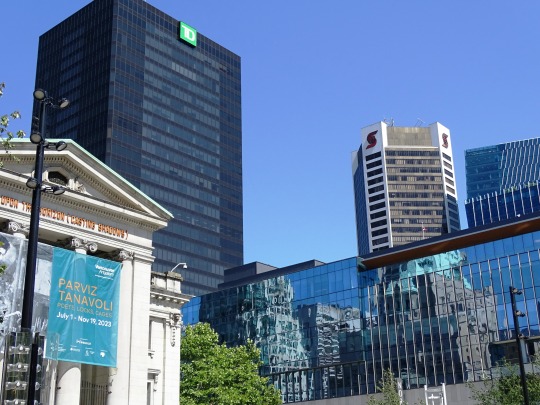

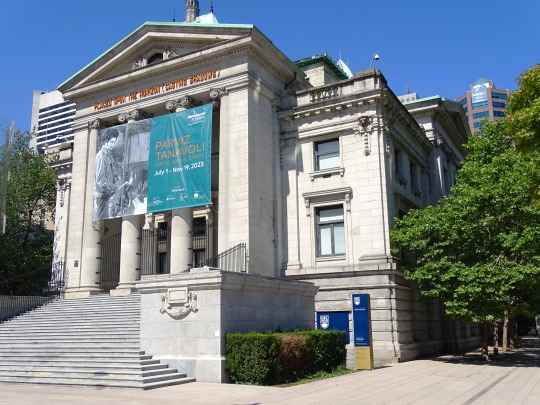







Robson Square, Vancouver (No. 1)
Robson Square is a landmark civic centre and public plaza, located in Downtown Vancouver, British Columbia. It is the site of the Provincial Law Courts, UBC Robson Square, government office buildings, and public space connecting the newer development to the Vancouver Art Gallery.
The British Columbia Centre was a development proposal slated to be completed by 1975. At 208 metres (682 feet), it would have been the tallest skyscraper in the city (and taller by just 7 meters) than the Living Shangri-La, (which currently holds the record). With the defeat of W.A.C. Bennett's Social Credit government in 1972, the plan was scrapped just as the construction phase was about to begin. Government officials saw this potential Skyscraper as a potential disruption to the current Vancouver Skyline. The New Democratic Party government of Dave Barrett responded to fears of the dark shadow that the building would cast on downtown, and commissioned a redesign from another architectural firm, Arthur Erickson Architects. The reconceptualization Erickson came up with was of a skyscraper laid on its back, the "B.C. Centre on its back."
Erickson biographer Nicholas Olsberg describes the design as follows:
Arthur came in and said 'This won't be a corporate monument. Let's turn it on its side and let people walk all over it.' And he anchored it in such a way with the courts — the law — at one end and the museum — the arts — at the other. The foundations of society. And underneath it all, the government offices quietly supporting their people. It's almost a spiritual progression.
Source: Wikipedia
#Robson Square#Hotel Vancouver#travel#original photography#vacation#tourist attraction#architecture#cityscape#downtown#summer 2023#BC#Vancouver Art Gallery#British Columbia#Robson Square Street share space#waterfall#Canada#reflection#tree#nature#flora#Sharp and Johnston#John Smith Archibald#John Schofield#Vancouver
5 notes
·
View notes
Text

December’s event will feature notable BC lawyer, mediator, and conflict resolution expert Sharon Sutherland who will share her story of how creativity has shown up in work and life through the lens of the global theme ‘pain’.
Sharon was one of the first Project Managers of the BC Court Mediation Program (1998-2003). From 2000-2014, Sharon was a faculty member at the University of British Columbia Faculty of Law where, in addition to a range of substantive legal courses, she taught an intensive clinical mediation program and supervised the Faculty’s Judicial Externship program. From 2006-2010, Sharon worked with Mediate BC to develop a province-wide Child Protection Mediation Practicum aimed at increasing the number of child protection mediators in under-serviced parts of BC. From 2014-2016, Sharon worked as a Knowledge Engineer in the development of the Civil Resolution Tribunal, focusing on both Strata and Small Claims streams.
With her background in practicum design and management, Sharon has a special interest in mediation mentorship. She has been a mediation mentor in a variety of programs (Small Claims, Child Protection, community mediations) since 1997. She is a founding Board member of CoRe Conflict Resolution Society where she manages the Speaker Series.
In June 2021, Sharon received an honorary doctorate from the Justice Institute of BC for contributions to conflict resolution through practice, advocacy, and the training and mentoring of mediators. Sharon also was honoured with the 2011 Susanna Jani Prize for Excellence in Mediation.
In addition to an LL.M. in ADR from Osgoode Hall Law School, Sharon received a M.A. in Drama and Theatre Studies from the University of London, and completed all work but her thesis towards a Ph.D. in Drama from the University of Toronto. This theatrical background continues to inform her teaching and practice. Sharon has participated in a variety of academic and practice-oriented projects in applied improvisation, Theatre of the Oppressed, and other theatre tools for conflict resolution.
Sharon is keenly interested in games as a tool for supporting team building, conflict prevention and conflict management. She has hosted several Collaborative Game Jams, and is a member of PignPotato Games. She is one of the designers of Zombie Fight or Flight, a collaborative card game, and designs and hosts Scavenger Hunts for team building.
Every month we ask our speaker a handful of probing questions to give us a deeper glimpse into their life and relationship with creativity:
How do you define creativity and apply it in your life and career?
Margaret Boden’s definition of creativity as the ability to come up with ideas that are ”new, surprising, and valuable” resonates with me because it’s wide-ranging and captures possibilities in all areas of life. I try to appreciate creativity in all of its forms - artistic endeavours, cooking, strategic planning, games, team sports, etc.
Where do you find your best creative inspiration or energy?
I’m energized by new experiences, change, and (unfortunately, perhaps) deadlines.
What’s one piece of creative advice or a tip you wish you’d known as a young person?
Creativity applies to everything, including creating the work you want to be doing.
Who (living or dead) would you most enjoy hearing speak at CreativeMornings?
Tahmoh Penikett, Rachel Bloom, Baba Brinkman.
What’s the craziest thing you’ve ever done?
Captained a GISH team to victory! Essentially 8 days of making 223 of 227 impossible tasks and goofy acts of kindness happen. Personal craziest tasks would include acting as judge on the diving board of a literal jury pool, setting up a giant game of red rover with 53 wedding guests, re-enacting the pottery scene from “Ghost” using cement, public maple syrup and glittering a teammate, and zombie slow-speed tag at the mall.
What are you reading these days?
Fanfiction - endless creativity and, occasional guilty pleasure, combined.
Where was the last place you travelled?
Last non-work travel was to Greenland, and now I want to go straight back!
WATCH RECORDING HERE
0 notes
Text
Unlocking Opportunities: The Many Benefits of Canada Permanent Residency

Canada, known for its breathtaking landscapes, cultural diversity, and high quality of life, has become a sought-after destination for individuals seeking a better life and professional opportunities. One of the pathways to establishing a long-term connection with this vibrant country is through obtaining a Permanent Residency (PR). In this blog, we'll explore the numerous benefits of Canada PR and why it's a game-changer for those looking to make Canada their home.
1. Work and Live Anywhere in Canada:
Canada PR status grants individuals the right to work and live anywhere in the country. Whether you prefer the bustling city life of Toronto, the serene landscapes of British Columbia, or the cultural richness of Quebec, as a permanent resident, you have the flexibility to choose where you want to settle.
2. Access to Social Benefits:
Permanent residents in Canada enjoy the same social benefits as citizens. This includes healthcare coverage, one of the most comprehensive and publicly funded healthcare systems in the world. PR holders also have access to social services, education, and unemployment benefits, providing a safety net for their families.
3. Canadian Citizenship Eligibility:
One of the significant advantages of obtaining Canada PR is the pathway it opens to Canadian citizenship. After living in Canada as a permanent resident for a certain period, individuals become eligible to apply for citizenship, granting them the right to vote and participate fully in Canadian civic life.
4. Protection under Canadian Law:
As a permanent resident, you are protected under Canadian law and the Canadian Charter of Rights and Freedoms. This ensures that your rights and freedoms are upheld, creating a secure and inclusive environment for you and your family.
5. Education Opportunities:
Canada is home to world-renowned educational institutions. Permanent residents can benefit from lower tuition fees compared to international students, making it more affordable for their children to pursue higher education in Canada.
6. Quality of Life:
Canada consistently ranks high in global quality of life indices. With a strong economy, low crime rates, and a commitment to environmental sustainability, PR holders can enjoy a high standard of living and a peaceful atmosphere.
7. Global Mobility:
Canada's PR status allows individuals to travel freely in and out of the country. This flexibility is crucial for those who have international business commitments, family abroad, or a desire to explore the world while maintaining their ties to Canada.
8. Access to Social Integration Programs:
Canada actively promotes social integration, and as a PR holder, you have access to language training programs and settlement services to help you integrate into Canadian society more smoothly.
Conclusion:
Canada PR is a gateway to a plethora of opportunities and benefits that contribute to a fulfilling and prosperous life. From the right to live and work anywhere in the country to access to social benefits and the possibility of Canadian citizenship, obtaining PR status is a significant milestone for those aspiring to call Canada their home. If you are considering a move to Canada, exploring the advantages of Permanent Residency might just be the key to unlocking a brighter future for you and your family.
0 notes
Text
Navigating Legal Matters with Confidence: Finding the Right Lawyer in Kelowna
Legal matters can be complex and challenging, often requiring the expertise of a qualified lawyer. Residents of Kelowna, a vibrant city in British Columbia, Canada, have access to a diverse range of legal services provided by experienced lawyers. Here's a guide to finding the right lawyer in Kelowna to effectively address your legal needs.
Understanding Your Legal Needs
Before seeking legal representation, it's crucial to clearly define your legal needs. This involves identifying the specific legal issue you're facing, the desired outcome you seek, and any relevant deadlines or timelines. Having a clear understanding of your legal situation will help you communicate effectively with potential lawyers and make an informed decision.
Seeking Recommendations
Word-of-mouth recommendations from friends, family, or colleagues who have had positive experiences with lawyers in Kelowna can be a valuable resource. Additionally, professional organizations, such as the Law Society of British Columbia, may provide referrals based on your specific legal needs.
Conducting Online Research
Online directories and reviews can provide valuable insights into the qualifications, experience, and areas of expertise of lawyers in Kelowna. Utilize websites of local law firms, legal organizations, and online legal directories to gather information and compare different lawyers.
Scheduling Consultations
Once you've identified a few potential lawyers, schedule consultations to discuss your legal needs in more detail. These consultations typically involve a brief meeting or phone call to assess the complexity of your case, determine if the lawyer is a good fit, and discuss potential fees and costs.
Factors to Consider When Choosing a Lawyer
Experience and Expertise: Ensure the lawyer has relevant experience and expertise in your specific area of law.
Communication and Accessibility: Choose a lawyer who is easy to communicate with, responsive to your inquiries, and available to meet or discuss your case as needed.
Fees and Costs: Discuss fees and costs upfront to avoid surprises. Understand the lawyer's fee structure, billing practices, and any potential additional costs associated with your case.
Trust and Comfort: Select a lawyer you trust, feel comfortable with, and believe is genuinely committed to representing your best interests.
Conclusion
Navigating legal matters can be daunting, but finding the right lawyer in Kelowna can make a significant difference in the outcome of your case. By carefully considering your legal needs, seeking recommendations, conducting thorough research, and scheduling consultations, you can make an informed decision and approach your legal challenges with confidence.
For more info about Kelowna Lawyer and Kelowna Lawyers so please visit our website.
0 notes
Text
Agency Law and the Watchtower Society
Publisher: In-Sight Publishing
Publisher Founding: March 1, 2014
Web Domain: http://www.in-sightpublishing.com
Location: Fort Langley, Township of Langley, British Columbia, Canada
Journal: In-Sight: Independent Interview-Based Journal
Journal Founding: August 2, 2012
Frequency: Three (3) Times Per Year
Review Status: Non-Peer-Reviewed
Access: Electronic/Digital & Open Access
Fees: None…
View On WordPress
#Advocates for Jehovah&039;s Witnesses Reform on Blood#HIPPA#Hospital Liaison Committee#Jehovah&039;s Witnesses#legal action#principals#Watchtower Society
0 notes